This post contains affiliate links from which I may receive a small commission, at no extra cost to you. In no way does this affect my opinion or the information I provide on the product. Please read my disclaimer for more info.
Vegetable oils are quite the topic at the moment.
It seems like everyone has a different opinion on whether or not oils should be consumed. If they should, it’s also hard to come to a consensus regarding which ones are healthy and what the best oils to cook with are.
For these reasons, I decided to do a little round-up of popular oils in order to see if they were healthy or harmful. This way, you’ll have all the facts to decide which oils to use for yourself. I also tried to find the best oils to cook with.
Now, let’s get to it!
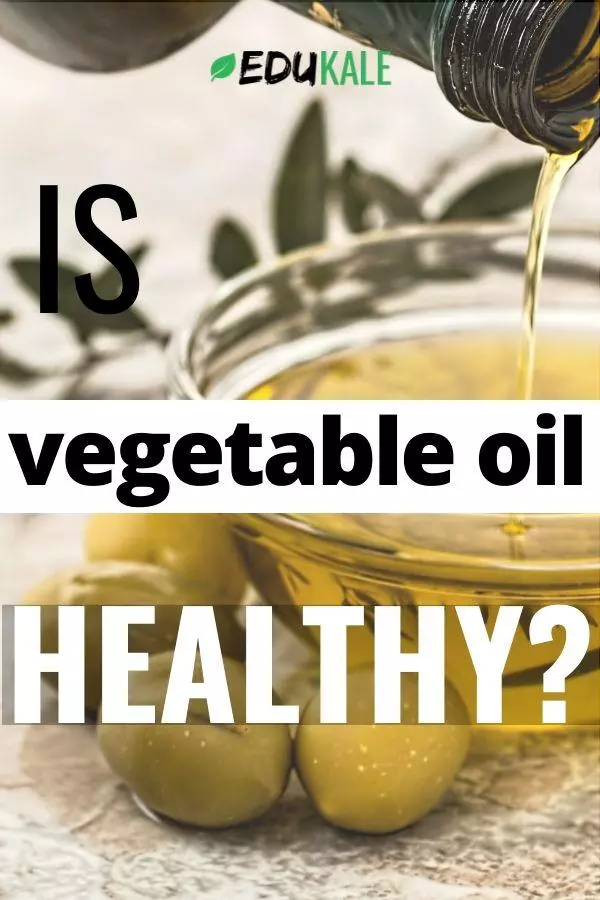
What is vegetable oil?
Vegetable oil is an oil extracted from a plant’s seeds, nuts, or fruit. Methods include pressing/ crushing the plants, or using a chemical solvent.
The most common oils include canola, olive, palm, coconut, corn, and sunflower.
Is vegetable oil healthy?
What should you look at to determine this?
1. The oil’s production method
Most vegetable oils are highly processed and refined. If you take the chemically extracted oils, here’s basically how the process goes:
- The seeds (which can be genetically modified, but not always) are turned into flakes and cooked. This denatures the cell tissues in order for the solvent to get in.
- Solvent (paraffinic petroleum solvent such as hexane or heptane) is then mixed to the seeds in order to extract the oil.
- The mixture is then heated and the oil is recovered.
- In some cases, there can be even more steps such as bleaching, refining, and deodorizing.
This technique is quite harmful to human health. It goes without saying that the oil coming from this procedure definitely isn’t healthy.
It mainly includes canola oil, cottonseed oil, corn oil, and general “vegetable” oil.
However, mechanical pressing is another common method of extracting oil, which doesn’t involve harmful chemicals. Compressive forces separate the oil from the seed.

2. Refined or unrefined?
An unrefined oil means that it isn’t touched after the extraction process, and still has the benefits of the plant.
This is the best kind to go for.
Avoid the chemically refined oil. This means that is has been bleached or deodorized or treated with something you don’t want.
However, a naturally refined oil, meaning that is was refined mechanically, can be fine. It isn’t as good as unrefined as it doesn’t retain all of the plant’s benefits, but it can have certain advantages.
For instance, a refined oil can withstand heat better, and doesn’t taste like the plant it was extracted from. This is a good option if you want to use avocado or coconut oil for instance, but don’t want your food to taste like that.
3. The type of fat it contains
Trans fat
The one type of fat you should really avoid is trans fat, especially artificial trans fat. Basically, it’s oil solidified through hydrogenation.
It raises the “bad” LDL to “good” HDL cholesterol ratio.
You’ll find this in a lot of margarine or processed foods, even if it has been banned in many countries.
Monounsaturated fats
On the other hand, monounsaturated fats are better for your health. They increase “good” HDL cholesterol while lowering “bad” LDL, and may reduce disease risk factors.
Oils rich in monounsaturated fats include olive oil, peanut oil, sesame oil, canola oil, and avocado oil.
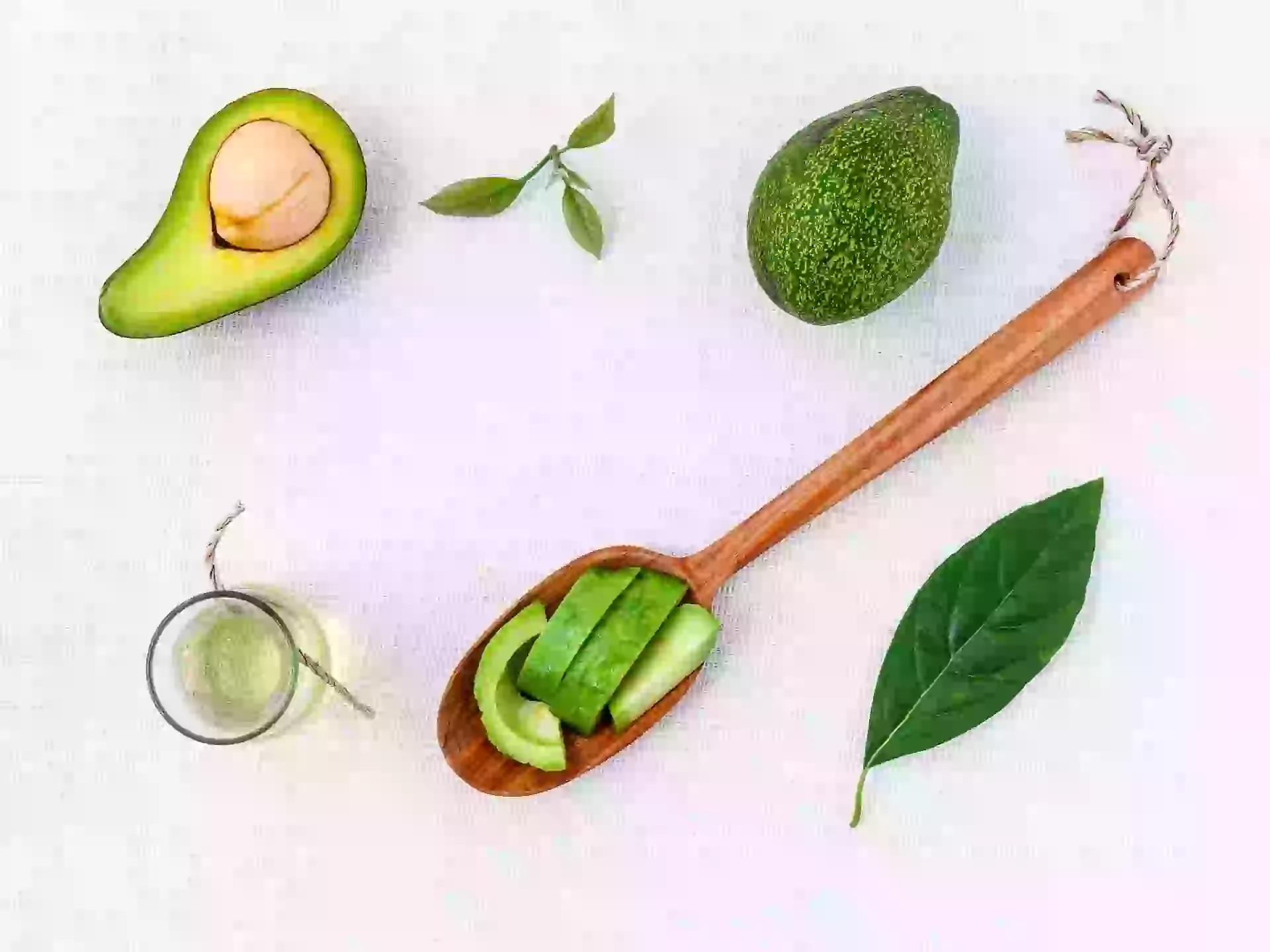
For the other types of fats, things aren’t as clear.
Saturated fats
They are generally seen as less healthy than unsaturated fats, as they raise cholesterol levels.
However, this study found that dietary saturated fats weren’t associated with an increased risk of cardiovascular or coronary heart disease.
This review showed that reducing saturated fat intake had little effect on different health factors.
However, it’s apparently a useful strategy to replace saturated fats with polyunsaturated fats.
To sum up, if you consume saturated fats in moderation (no more than 10% of your diet), it’s fine. The problem is that they are often consumed in excess (meat, processed foods…) so using an oil rich in saturated fats can be overkill.
Coconut oil is high in saturated fat, for example.
Polyunsaturated fats
They are also a source of debate. Some studies 1 2 show that replacing saturated fats by polyunsaturated fats prevents coronary heart disease.
Polyunsaturated fats include omega-3 and omega-6 fatty acids, which are essential as your body can not make them on its own. It’s therefore crucial to get them from your food.
Omega-3 fatty acids can protect against heart disease and are anti-inflammatory.
On the other hand, omega-6 fatty acids are pro-inflammatory.
So what you should really be paying attention to is the omega 6:omega 3 ratio.
While some omega-6 fatty acids are essential to your health, the Western diet has a ratio of 15/1, which is terribly excessive. This promotes many diseases such as cancer, heart disease, and inflammatory and autoimmune diseases.
You should therefore use oils which are high in omega-3 fatty acids, such as flaxseed oil and chia seed oil. Conversely, assuming you are already getting more than enough omega-6 from your diet, stay away from high omega-6 oils such as sunflower oil, grapeseed oil, corn oil, and cottonseed oil.
Hemp and walnut oils have approximately a 3-5 to 1 omega 6: omega 3 ratio. They are also good to consume.
Which are the best oils to cook with?
Now that you have a better general idea of which oils to buy and which to ditch, there’s one more thing to look out for.
Indeed, some oils are great on salads but not so great to cook with. That’s because each oil has a different smoke point, meaning a temperature at which the oil stops simmering and starts smoking.
This means that the oil is breaking down, potentially releasing chemicals and free radicals that could make your food taste bad and be harmful to your health. You need to consider which oil is best depending on the temperature you want to use.
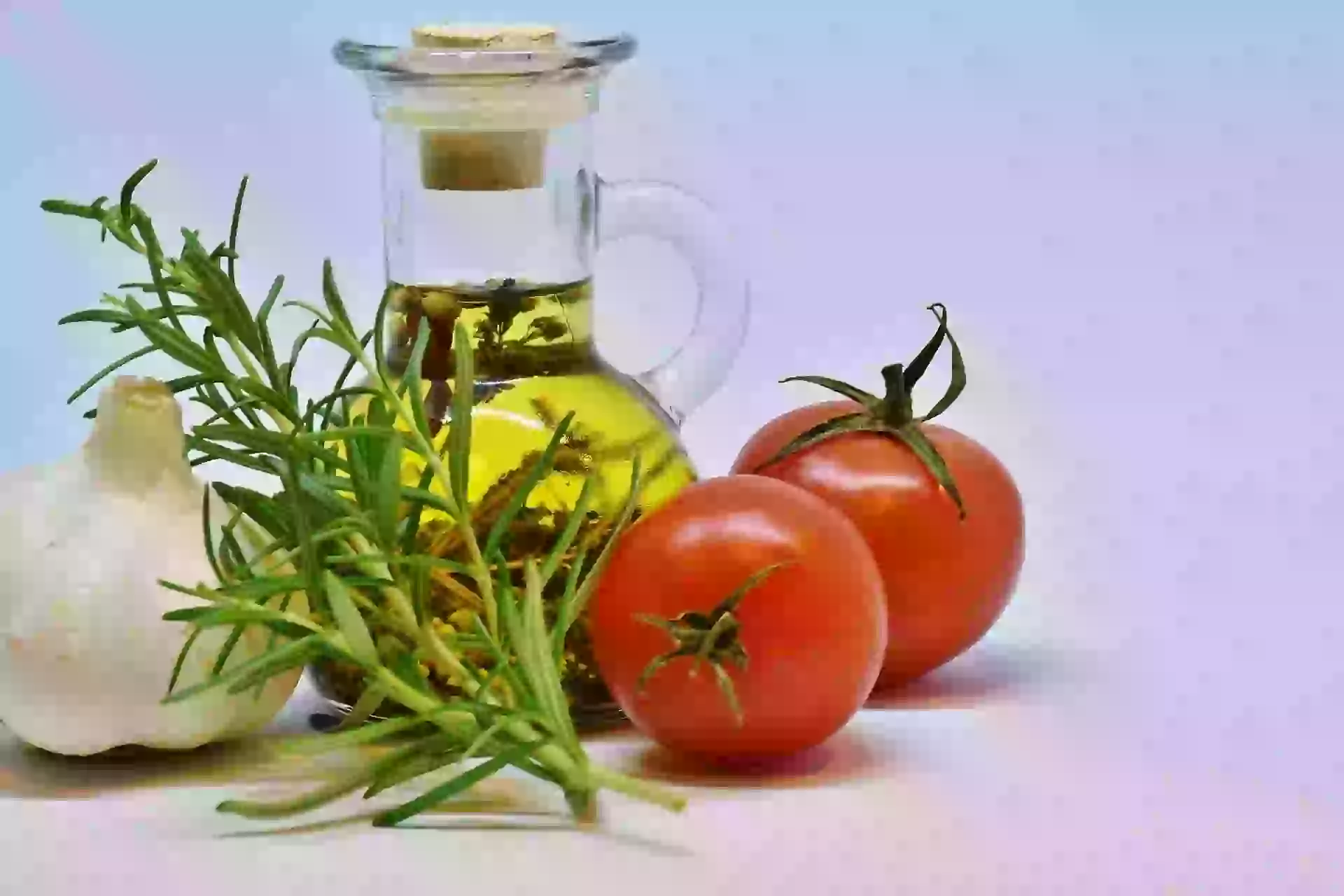
Great oils for cooking at high temperatures include avocado oil (smoke point around 520°F, 271°C) and naturally refined coconut oil (smoke point around 450°F, 232°C).
For cooking at medium heat, you can use sesame oil (410°C, 210°C), virgin coconut oil (350°F, 177°C) or olive oil (320°F, 160°C).
Canola, sunflower, and general vegetable oils are also good for cooking at high temperatures, but I wouldn’t use them because of the health implications listed above.
To sum up, here are the oils to keep in your pantry and the best oils to cook with:
Olive oil, as long as it’s extra virgin olive oil, is a must-have for drizzling over salads, making dips, dressings, etc. You can also use it for cooking at medium heat.
Flaxseed, chia seed, and hemp oils are great for salads, or as dips and condiments, but shouldn’t be used for cooking.
Coconut oil and avocado oil are great for cooking.
My personal favorite is olive oil. I drizzle it on everything! (in moderation, of course ;))
Remember to pay attention to the way the oil was made. Check to see if the oil is refined, which isn’t too bad as long as it was done naturally.
Prefer monounsaturated oils or oils high in omega-3. Finally, make sure to check your oil’s smoke point before you cook with it. Fat is an important part of your diet and choosing healthy oils is a great way to get some good fat!

Welcome!
I'm Lucie, the nutritionist behind Edukale! If you'd like to learn more about me, click HERE !
Read More!
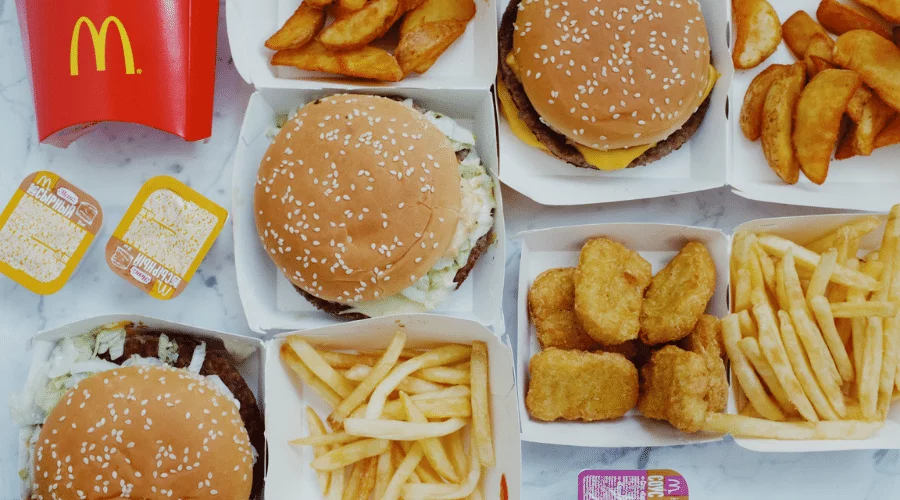
The truth about processed foods
You’ve probably heard that it’s best to reduce your intake of “processed foods” for healthy eating, and increase your intake of whole foods for optimal health.

The Best Foods to Fight Fatigue
Do you feel like you’re always tired and that you need multiple coffees to get you through the day?
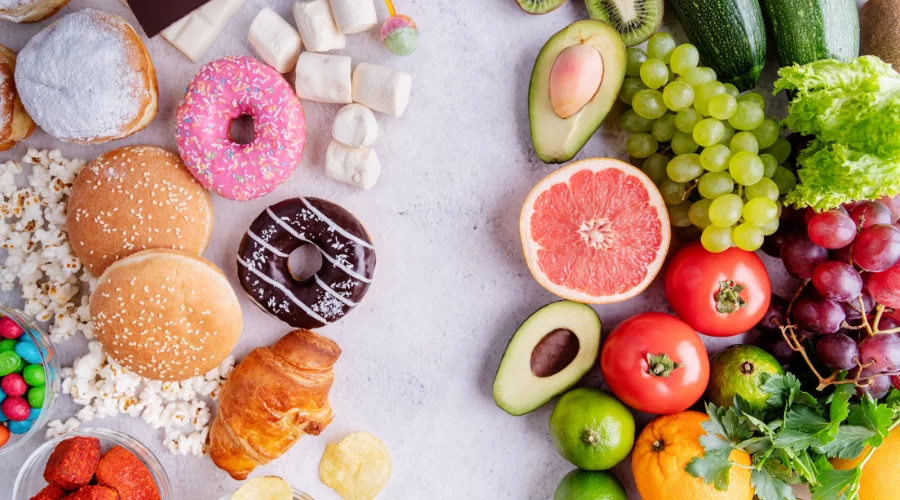
how to find the balance between healthy eating and dieting
It can be hard to find the right balance between healthy eating and dieting without becoming obsessed with food.
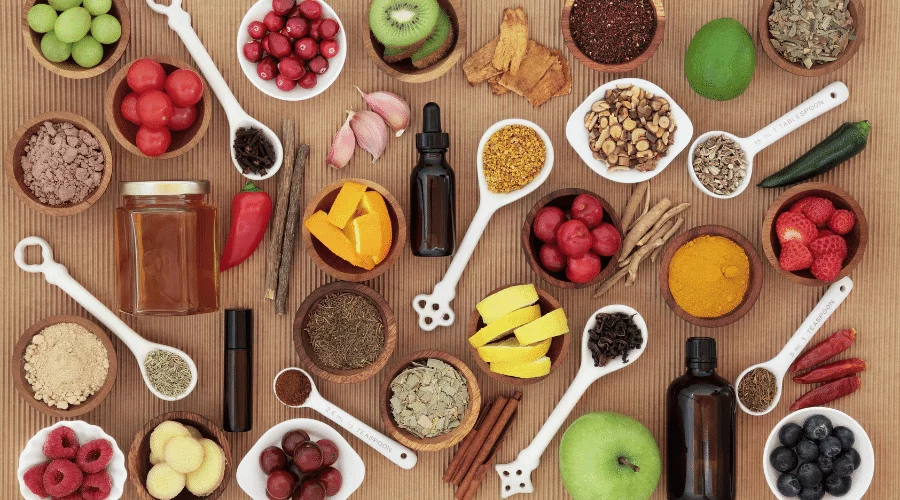
Can you use food as medicine?
“Let food be thy medicine, and let medicine be thy food.” We’re all familiar with this quote attributed to Hippocrates, and we all know the huge impact our food choices have on our health.
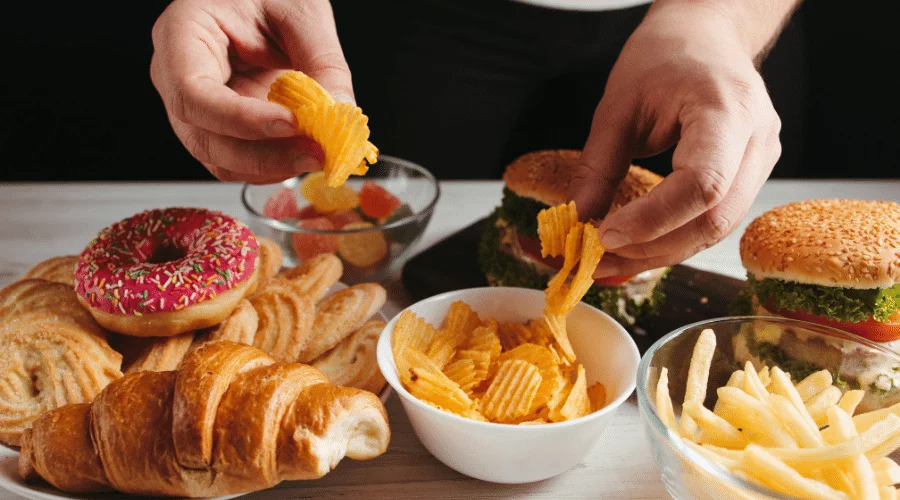
How to finally stop overeating for good!
Overeating means eating past your body’s actual needs, and it can be rather uncomfortable.
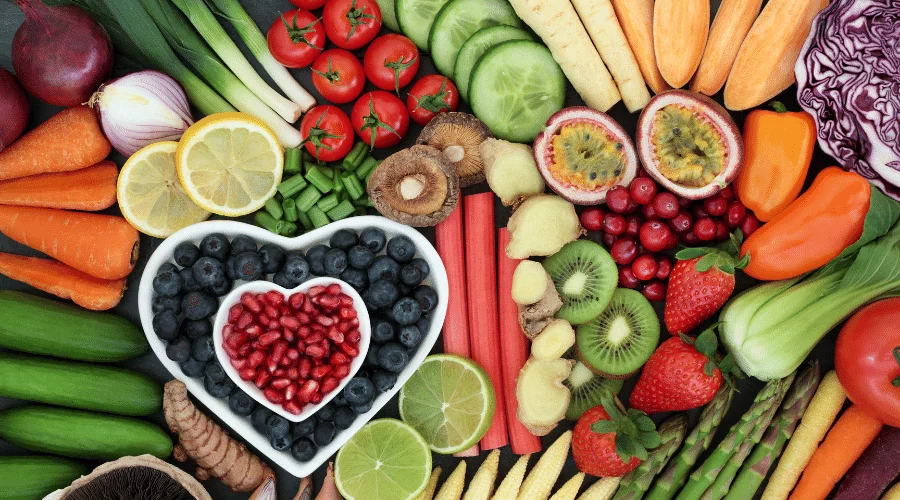
The anti-inflammatory diet: get rid of inflammation
You’ve certainly heard about the anti-inflammatory diet before and the benefits it could have on your body.
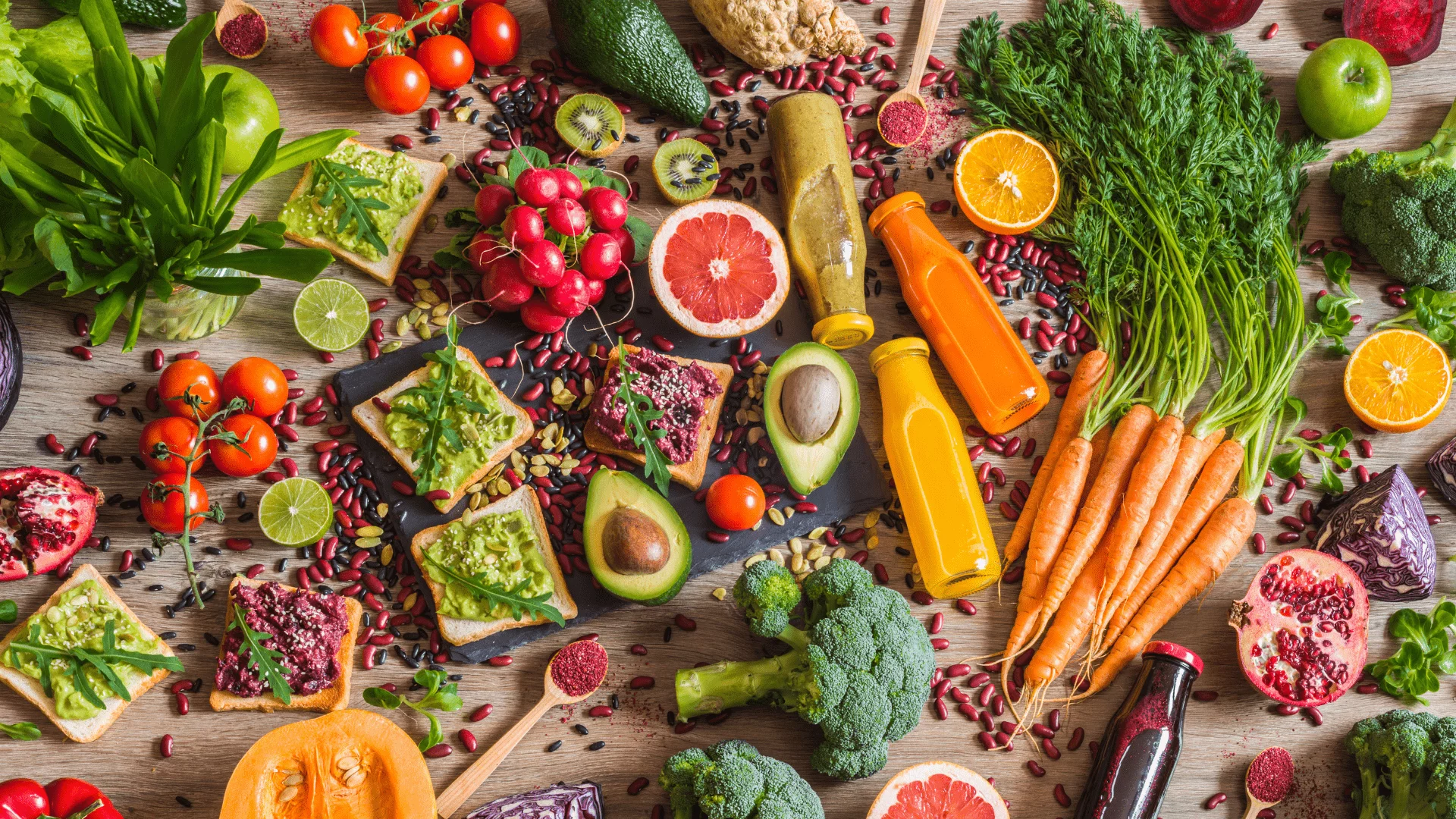
The complete beginner’s guide to veganism
Even though you can absolutely be healthy on a diet that includes animal products, the scientific consensus shows that increasing your consumption of plant-based foods is what is best for health.

Physical vs emotional hunger—learn the difference
You may be aware that physical hunger is not the only type of hunger that exists. There are actually two main types of hunger: physical hunger and emotional hunger
-Lucie
If you’re interested in nutrition, its impact on our health, and the science behind it, you should definitely read How Not to Die. In this book, Doctor Michael Greger, founder of Nutrition Facts, examines the top causes of death in America and explains how your diet can prevent— and in some cases even reverse— them. His advice is all backed by science and he writes in a very clear and entertaining way. This book isn’t a list of what you already know. It will teach you the keys to living a long healthy life, in a simple and practical way, and without spending fortunes on supplements and pills!
PLUS if you want to take it a step further, you can check out the How Not to Die Cookbook to implement the advice easily!



Comments are closed.